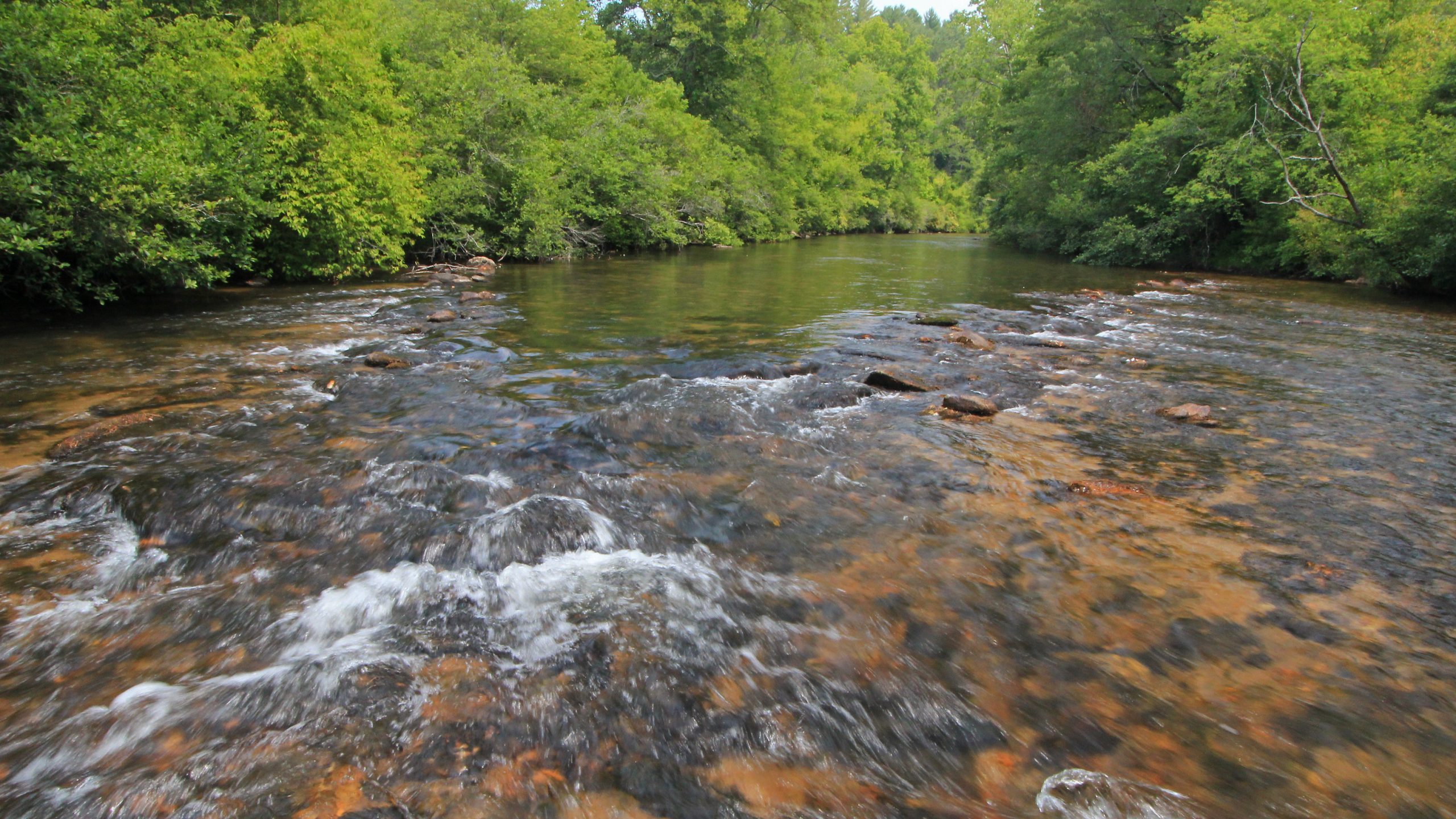Global Change Fellow Megan Johnson on the Importance of Considering Traditional Ecological Knowledges

This semester, the SE CASC Global Change Fellows have worked to create science expert videos that communicate the state of the science of various landscape conservation challenges related to global change in the southeastern United States. Students chose a topic of interest, interviewed an expert in the field, and created an informative video and blog post to share what they learned. The following video and summary were created by SE CASC Global Change Fellow, Megan Johnson.
Considering Traditional Ecological Knowledges in Climate Adaptation Planning

Written by: Megan Johnson
Interviewee: Dr. Casey Thornbrugh (Tribal Climate Science Liaison for USET and the NE and SE Climate Adaptation Science Centers)
In this video, Dr. Casey Thornbrugh discusses Traditional Ecological Knowledges (TEKs) and their importance when considering land management and adaptation planning for climate change. Casey is a tribal climate liaison between the United South and Eastern Tribes (USET, Inc.) and the Northeast and Southeast CASCs. He is a citizen of the Mashpee Wampanoag Tribal Nation.
Drawing from his experiences as a student in the southwest, a climate science instructor at Tohono O’odham Community College in Arizona, and a director of his tribal nation’s Natural Resources Department, Casey discusses the importance of sharing TEKs and respecting these knowledge sources for their own merit, independent of western science.
After defining TEKs, discussing their importance, and how to approach a mutually beneficial relationship between TEKs and western science (hint: respect and balance), Casey shares a story of how traditional knowledge and use of fire helped protect the New England Cottontail on Cape Cod. The re-introduction of this practice had the added benefits of reducing the risk of devastating wildfire and bringing back several culturally important plant species.
Take-home points
- TEK is a way of knowing about the natural environment that is place-based and passed down through generations, with associated rules of etiquette and responsibility.
- TEK reflects a relationship with a place and how to live in a place, not change the place.
- A successful, mutually beneficial relationship between TEK and western science is contingent on respect and balance.
- This relationship comes down to knowledge sharing rather than “integration.” Treat the knowledge source as valuable on its own merit, not just as a way to improve western science.
- Fire has been used by indigenous peoples – including the Mashpee Wampanoag – for centuries to control various plant growth and wildlife habitat, and the practice was even documented by early European settlers.
- This practice was suppressed by the settlers and subsequently forgotten by many, which led to dangerous fuel loading (wildfire risk) and reduced habitat for species like the New England Cottontail.
- In partnership with the town of Mashpee, MA, and other organizations, the Mashpee Wampanoag nation re-introduced controlled fire to help reduce fire risk, protect the threatened cottontail species, and re-establish culturally important plants like blueberries.
Additional resources
- United Nations Declaration on the Rights of Indigenous Peoples: https://www.un.org/development/desa/indigenouspeoples/declaration-on-the-rights-of-indigenous-peoples.html
- Daigle et al., 2019. Traditional Lifeways and Storytelling: Tools for Adaptation and Resilience to Ecosystem Change. Human Ecology. https://doi.org/10.1007/s10745-019-00113-8
- Chisholm Hatfield et al., 2018. Indian time: time, seasonality, and culture in Traditional Ecological Knowledge of climate change. Ecological Processes, 7:25. https://doi.org/10.1186/s13717-018-0136-6
- Mason et al., 2012. Listening and Learning from Traditional Knowledge and Western Science: A Dialogue on Contemporary Challenges of Forest Health and Wildfire. Journal of Forestry. http://dx.doi.org/10.5849/jof.11-006.
- Climate and Traditional Knowledges Workgroup (CTKW). 2014. Guidelines for Considering Traditional Knowledges in Climate Change Initiatives. https://climatetkw.wordpress.com
- Protecting New England cottontail habitat on Cape Cod: https://www.youtube.com/watch?v=9dpJ0CrJ1s4
- Dr. Robin Wall Kimmerer on braiding knowledge systems at the 2020 Tribal Lands and Environment Forum (beginning at ~22:53): https://mediaspace.nau.edu/media/2020+TLEFAVG+Opening+Plenary/0_wihiqmfv/178381692
- United South and Eastern Tribes, Inc.: https://www.usetinc.org/
- Categories:
